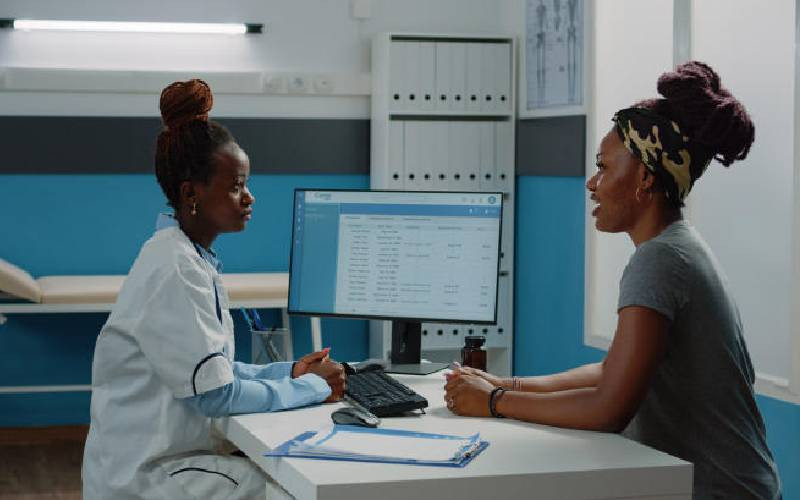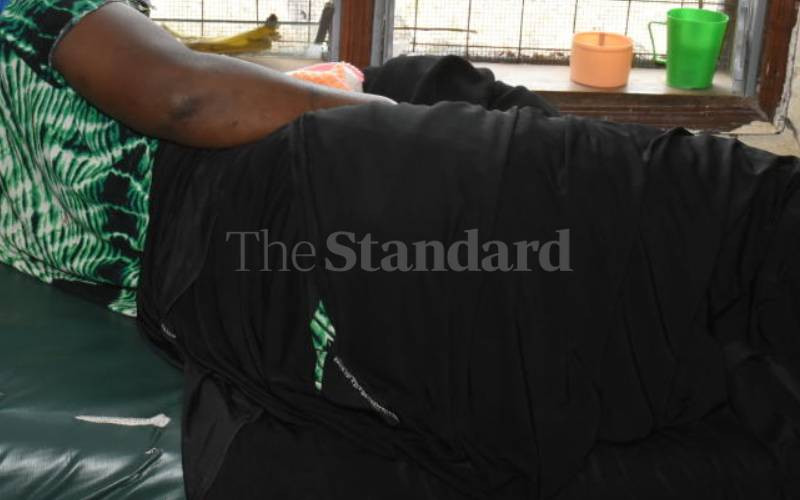
The widely used and only treatment in malaria prevention in pregnant women may no longer be effective in treating the disease. As such, pregnant women are at a higher risk of malaria infection in areas where drug resistance to sulfadoxine-pyrimethamine is rising. This is according to a study led by a team at the Liverpool School of Tropical Medicine (LSTM) and published in the Lancet Infectious Diseases.
"Resistance of Plasmodium falciparum to sulfadoxine-pyrimethamine (SP) threatens the antimalarial effectiveness of Intermittent Preventive Treatment during pregnancy (IPTp) in sub-Saharan Africa," the publication read in part.
The researchers reviewed more than 100,000 birth outcomes across Sub-Saharan Africa which revealed that there is a trend towards reduced effectiveness of SP due to the malaria parasite's increased resistance to the drug which is so far the only drug used in IPTp as recommended by WHO.
Professor Feiko ter Kuile, an expert in the malaria infection during pregnancy, who also worked with a multi-disciplinary team including the US Centers for Disease Control and Prevention, the Worldwide Antimalarial Resistance Network (WWARN) and Duke University to complete this study said SP effectiveness has been compromised.
"In areas with the highest grade of resistance where more than 37 percent of parasites carry six mutations, the effectiveness of SP appears to be fully compromised. It is clear that in these high resistance settings alternative approaches to the prevention of malaria in pregnancy are urgently needed to achieve better birth outcomes for pregnant women," he said.
Use of SP in pregnancy has been associated with major reductions in low birth weight, preterm births, maternal malaria infection and anaemia especially in east and southern Africa, one of the most malaria endemic regions.
Without protection from malaria infections in pregnancy, an estimated 45 percent of 32 million pregnancies in malaria-endemic areas of sub-Saharan Africa are exposed to Plasmodium falciparum malaria parasite every year. This may cause almost 1 million malaria-associated low birth weight deliveries and adverse consequences on the health of the child.
In light of this, the researchers recommend that other alternatives to sulfadoxine-pyrimethamine used in IPTp are needed particularly in areas in areas where the prevalence of the mutant parasite exceeds 37 percent.
WHO recommends that this preventive treatment be given to all pregnant women starting as early as possible in the second trimester. Pregnant women are expected to receive at least three doses of SP, each dose being given at least 1 month apart. This can be safely administered up until the time of delivery, whether the mother has malaria or not.
Malaria vaccine delays
This report of resistance to the only anti-malarial used in pregnancy comes amid recent progress that has been made in addressing malaria infection globally like the RTS,S/AS01 candidate vaccine for malaria whose pilot roll out has been marred by delays. This vaccine is yet to be rolled out in Kenya, Malawi and Ghana, the three countries selected to implement this.
The delays in rolling out the vaccine's pilot have been since 2015 in the three countries in what experts said was due to stringent conditions that needed to be met, as this is the first vaccine pilot in Africa aimed at advising global use later on.
The vaccine's pilot is to be administered to children from the age of 6, 7, 9 and 24 months of age. This, routine except the 9-month dose, experts say is outside the routine vaccination schedule that many people know of. As such, they have to engage stakeholders widely to ensure that they will have enough children enrolled to ensure good coverage for the pilot.
According to PATH Ghana, logistics to roll out the pilot have to be done right from the outset.
"We want to see how we can use this vaccine in the Extended Program on Immunisation (EPI) from the cold-chain system, how to capture it in the immunization cards and eventually how much it will cost the nation."
There is currently no commercially available malaria vaccine, and this vaccine, Mosquirix, is the furthest along in its development with an estimated 120,000 children to benefit from it in the three pilot countries.
"We are ready to roll-out the pilot but we are in the final stages of tying up a few administrative issues," Dr. Collins Tabu, the Head of Vaccines in Kenya's Ministry of Health said.
This malaria vaccine has a 40% efficacy, and is not recommended to be used in isolation, but to complement other malaria preventive measures like sleeping under an insecticide-treated nets, clearing bushes and stagnant waters among others.
 The Standard Group Plc is a multi-media organization with investments in media platforms spanning newspaper print
operations, television, radio broadcasting, digital and online services. The Standard Group is recognized as a
leading multi-media house in Kenya with a key influence in matters of national and international interest.
The Standard Group Plc is a multi-media organization with investments in media platforms spanning newspaper print
operations, television, radio broadcasting, digital and online services. The Standard Group is recognized as a
leading multi-media house in Kenya with a key influence in matters of national and international interest.











